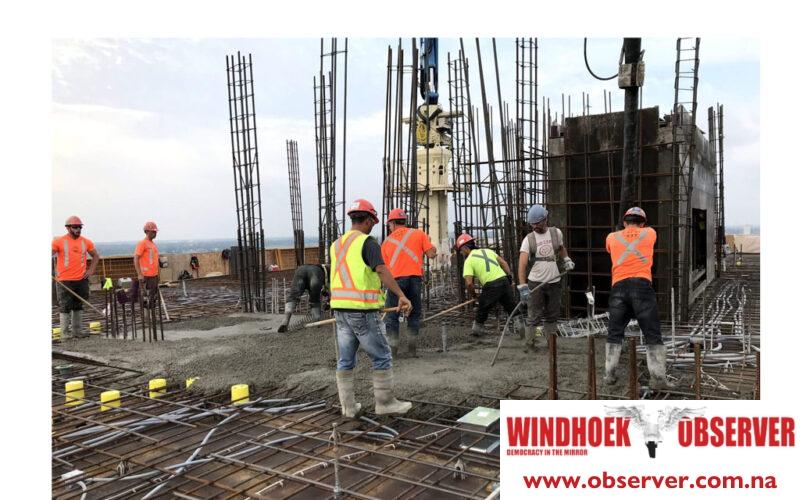Martin Endjala
The Construction Industries Federation of Namibia (CIF) has announced an increment of nine percent in minimum wages once the proposal is gazetted by the government through the Ministry of Labour, Industrial Relations and Employment Creation.
CIF Chief Executive Officer Bärbel Kirchner, told this publication yesterday that they have reached an agreement with Metal and Allied Namibian Workers Union to increase workers’ wages, and the increase will only be relevant for categories of workers as listed in the Collective Agreement.
She said the increase for the first year is five percent on the previous minimum wage payable; and for the second year, there will be an additional increase of four percent on the minimum wage payable of the previous year.
This means that in the first year, the minimum wage payable for an unskilled labourer will be N$ 18.72 and in the second year N$ 19.46, and all other conditions of employment will remain the same as in the previously gazetted Collective Agreement.
“Emphasis was placed on quality personal protection equipment (PPE), i.e. that they need to be of SABS or similar standard, as some contractors previously had disregarded the quality of PPE, in order to keep the costs down.
Employees covered by the Collective Agreement must be issued with two free overalls per year, as well as free safety boots which need to be issued every two years. Hard hats and gum boots also become relevant in defined areas. Gumboots must be returned to the employer after the relevant activity in the defined area is completed,” she said.
Kirchner stated that negotiations took place under very trying circumstances. Because growth in the construction sector remains elusive, many local contractors find themselves competing with foreign contractors, when they desperately need work to be able to keep on sustaining their businesses, which indeed has also again led to retrenchments.
“I am truly happy that we reached an agreement amicably, as this was not a given. Indeed, we engaged our members four times to ensure that our collective bargaining takes place within the confines of our mandate,” Kirchner said.
She added that it is critical that everyone in the sector adheres to the gazetted conditions as per the collective agreement to ensure a level playing field and that every contractor pays at least the minimum wages payable. This means every contractor in the sector, irrespective of whether they are engaged by government authorities or by the private sector; is also irrespective of whether the contractor is a member of the CIF or not.
“We need to make sure that it is indeed enforced. Clients should sporadically ask for good standing certificates from the Social Security Commission and payslips of employees on site, as well as prove that the workers on site are members of a pension fund. It is also critical that labour inspectors acquaint themselves with the new requirements once the new collective agreement is gazetted,” she urged.
MANWU Secretary-General, Justina Jonas said the union appreciates the conclusion of the agreement, especially the contractors through CIF who besides facing economic challenges could still ensure that the importance of workers’ well-being is recognised and appreciated. As the sector is going through a lot of challenges, MANWU continues to advocate for fairness and justice for construction workers especially those who are exposed to precarious work by foreign contractors who are awarded big projects at the expense of local contractors.
“We will continue to strengthen enforcement to ensure that all contractors especially foreigners and tenderpreneurs, are adhering to the minimum wages,” she said.




